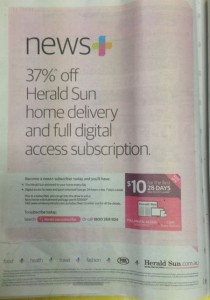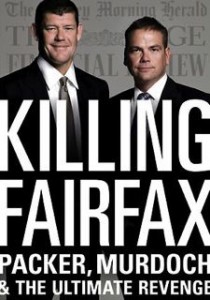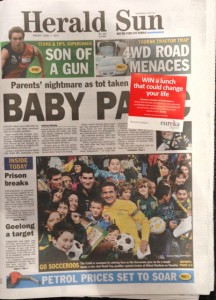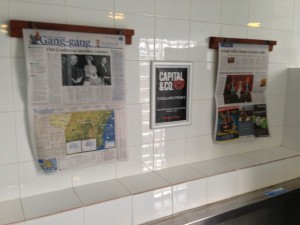Amazon.com CEO to buy The Washington Post newspaper
A company associated with Amazon CEO Jeff Bezos is to acquire The Washington Post. This move just announced has shocked many. It’s certainly a game changer. Bezos is a smart guy. His vision has driven extraordinary change in book publishing. His WaPo move is certain to trigger change elsewhere around newspapers.
Read what Jeff Bezos wrote about the acquisition. This passage is especially interesting to me:
The Internet is transforming almost every element of the news business: shortening news cycles, eroding long-reliable revenue sources, and enabling new kinds of competition, some of which bear little or no news-gathering costs. There is no map, and charting a path ahead will not be easy. We will need to invent, which means we will need to experiment. Our touchstone will be readers, understanding what they care about – government, local leaders, restaurant openings, scout troops, businesses, charities, governors, sports – and working backwards from there. I’m excited and optimistic about the opportunity for invention.
Twitter is ablaze with tweets about this move and questioning how Bezos will behave as a newspaper proprietor. I doubt Bezos will see himself as this. I suspect he will see himself has having just purchased access to a great content gathering network that will reach beyond the dead tree model that has made so much of the history of The Washington Post.
Whether Bezos will be a good proprietor is consideration for another day. Today, I’m thinking more about the bold move by someone who is expert at digital and physical distribution buying a a newspaper.
Newsagents who rely on print newspapers as a key traffic or profit generator need to understand that the world has changed. There is no upside in the future of print as a medium for news, analysis and local context yes, but not news.




